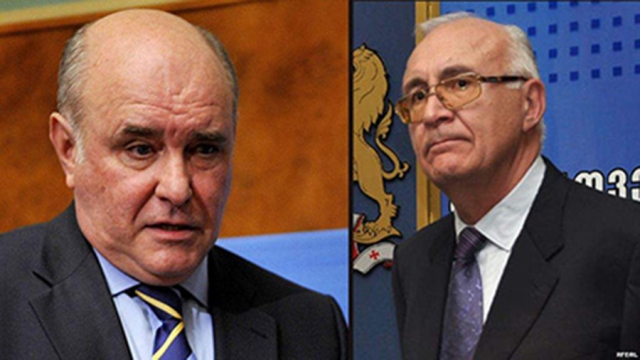Value of Prague Talks Questioned Amid South Ossetia Border Controversy
The 4-hour meeting of Zurab Abashidze [Georgian PM’s special representative for relations with Russia] and Gregory Karasin [Russia’s Deputy Foreign Minister] concluded in Prague on July 15 where the main topic of discussion was the process of borderization of the occupied region of South Ossetia.
Before the meeting of Karasin and Abashidze, the situation at the Administrative Boundary Line (ABL) intensified after one part of the ABL was pushed further into Georgian territory meaning that part of the Baku-Ceyhan pipeline found itself outside Georgian control, close to the village of Khurvaleti. The controversial step also pushed the ABL nearly half a kilometer closer to the main east-west highway of the country.
Before the meeting in Prague, views were expressed in both Tbilisi and Moscow that South Ossetian authorities had initiated the fresh border tension. In fact, if the South Ossetian (as well as Abkhazian) separatists were and are afraid of anything, it is the possibility of an agreement between Georgia and Russia at the expense of their interests. Nevertheless, it is very doubtful that border guards would fulfill orders from Tskhinvali to erect barbed wire without receiving an order from Moscow. Therefore, Moscow’s role and motivation has been the subject of widespread speculation.
At the meeting of Abashidze and Karasin, the Georgian diplomat claimed he had to raise the border issue because of “pressure from Tbilisi” but there was no progress to report on this front.
“We should not be naпve and expect that after some meeting Russia will change its politics towards Georgia. Therefore, I did not expect that I would convince him and someone would feel ashamed, take the signpost and go back to Moscow. We had no such expectations,” Abashidze told the TV Imedi journalist in Prague, upon leaving Hotel “Diplomat”.
The Georgian diplomat’s point was beyond debate. Moscow’s strategy has not changed for the last 20 years. A Russian political scientist Konstantin Zatulin phrased the essense of Russia’s attitude in the following way: “Let’s have relations with Georgia as if there was no problem with Abkhazia and South Ossetia and let’s have relations with its former autonomies as if there is no Georgia.”
Later, Russia’s Prime Minister Dmitry Medvedev put the Georgia policy of the Kremlin in the following words: “No matter what you do, what kind of concession you make, in response we are ready to talk with you about trade, culture, sports, visas but Abkhazia and South Ossetia are not issues of bargaining. Russia does not trade its allies,” Medvedev said.
According to the political opposition in Georgia, the format of the meeting with Karasin itself lacks logic. “The situation is very dangerous and is getting worse daily, as we have seen today. This is why it is necessary to abolish this harmful format, make a diplomatic step, take the diplomatic initiative and fully focus on the Geneva format,” said the UNM’s Giga Bokeria. In fact, when establishing the negotiation format parallel to the Geneva format three years ago in order to normalize relations with Russia, the Georgian Dream government should have been aware that it would be fruitless.
The latest Prague meeting finally confirmed that Russia has achieved what it wanted – Tbilisi has accepted this formula where trade is facilitated providing the two elephants in the room, Abkhazia and South Ossetia, are not mentioned.
So the flow of mineral waters and wine over barbed wire fences continues, but when these fences start to move further south, the number of Georgians willing to suffer territorial losses for the sake of economic benefit will reduce further still.
Zaza Jgharkava












